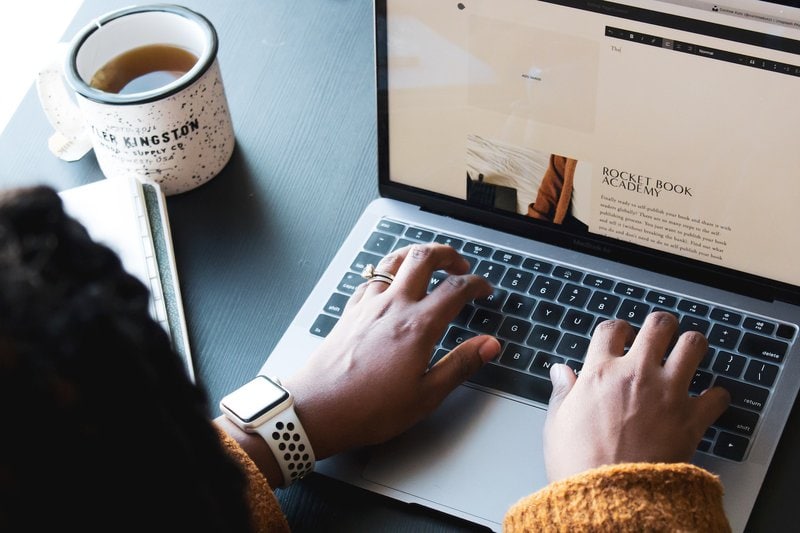Blogging And Copyright: Fair Use And Content Protection

Blogging has become a popular way for individuals and businesses to share their ideas, thoughts, and expertise with the world. However, with the widespread availability of online content, it is important to understand the legal implications of using copyrighted material in your blog.
This article aims to provide a comprehensive understanding of copyright law, particularly the concept of fair use, and how it applies to blogging. By delving into the basics of copyright law and its provisions, readers will gain insight into what constitutes fair use and how to determine if their use of copyrighted material falls under this legal doctrine.
Additionally, this article explores various strategies for protecting blog content, such as registering copyright and utilizing Creative Commons licenses. Furthermore, it addresses the issue of copyright infringement and advises on seeking legal advice when faced with copyright disputes.
Overall, this article serves as a valuable resource for bloggers seeking to navigate the complexities of copyright law and safeguard their content.
Key Takeaways
- Understanding fair use is essential for bloggers to use copyrighted material appropriately.
- Protecting blog content involves strategies like including a copyright notice and monitoring for infringements.
- Registering copyright provides legal protection and the ability to sue for damages.
- Seeking legal advice is crucial for protecting creative work and navigating copyright law.
The Basics of Copyright Law
The fundamentals of copyright law encompass the essential principles and regulations that govern the protection of creative works from unauthorized usage or reproduction.
Copyright law grants the creator of an original work exclusive rights, such as the right to reproduce, distribute, and display their work. These rights are automatically granted upon creation, without the need for registration or formalities.
Copyright protection extends to a wide range of creative works, including literary, artistic, musical, and dramatic works. It also covers digital content, software, and architectural designs.
Fair use is a crucial concept within copyright law, allowing limited use of copyrighted material without permission from the copyright owner. However, fair use is a subjective and context-dependent determination, considering factors such as the purpose, nature, amount, and effect on the market of the use.
Understanding the basics of copyright law is essential for bloggers to protect their own content and respect the rights of others.
Understanding Fair Use
Impartially examining the boundaries of legal appropriation for creative works is crucial for bloggers and content creators.
One key concept to understand is fair use, which allows for the limited use of copyrighted material without permission from the copyright owner.
Fair use is determined by four factors:
- The purpose and character of the use
- The nature of the copyrighted work
- The amount and substantiality of the portion used
- The effect of the use upon the potential market for the copyrighted work.
It is important to note that fair use is a subjective determination and there is no precise formula to apply.
Courts consider each case on an individual basis, weighing these factors to determine whether the use is fair or infringing.
Bloggers and content creators should be familiar with these factors to ensure they are using copyrighted material within the boundaries of fair use.
Determining if Your Use Falls Under Fair Use
One crucial aspect to consider when determining whether your use falls under fair use is assessing the four factors that courts use to evaluate the limited use of copyrighted material without permission from the copyright owner. These factors include:
- Purpose and character of the use: Courts analyze whether the use is transformative, meaning it adds new meaning or expression to the original work, or if it is merely a direct copy. Transformative uses are more likely to be considered fair use.
- Nature of the copyrighted work: Courts consider the nature of the original work, such as whether it is factual or creative in nature. Factual works are more likely to be eligible for fair use compared to highly creative works.
- Amount and substantiality of the portion used: Courts evaluate the quantity and importance of the copyrighted material used. Using small amounts or non-essential portions of the work is more likely to be fair use.
- Effect on the potential market for the copyrighted work: Courts assess whether the use of the copyrighted material would negatively impact the market for the original work. If the use competes with or substitutes the original work, it is less likely to be fair use.
By carefully considering these factors, you can determine whether your use falls within the boundaries of fair use.
Protecting Your Blog Content
To ensure the integrity and security of your online writings, it is essential to implement effective measures that safeguard the originality and exclusivity of your blog materials.
Protecting your blog content involves various strategies to prevent unauthorized use or plagiarism. One crucial step is to clearly establish your copyright ownership by including a copyright notice on your blog. This notice informs readers that your content is protected and prohibits others from copying or reproducing it without permission.
Additionally, regularly monitoring your blog for potential copyright infringements can help identify any unauthorized use of your content. Utilizing tools such as plagiarism detectors can aid in identifying instances of plagiarism and taking appropriate action.
It is also advisable to educate yourself about copyright laws and fair use guidelines to better understand your rights and how to respond to potential infringements.
By implementing these protective measures, you can safeguard your blog content and maintain its originality and exclusivity.
Registering Your Copyright
Registering your copyright provides legal protection and grants you exclusive rights over your creative work, ensuring that you have the necessary tools to defend and preserve your intellectual property.
Copyright registration is a process through which you can establish a public record of your ownership and claim to a particular work. This registration strengthens your legal position in case of any infringement or unauthorized use of your content.
By registering your copyright, you gain the ability to sue for damages and seek legal remedies if someone violates your rights. It also serves as a deterrent, as potential infringers are more likely to respect your rights when they see that your work is officially registered.
Additionally, copyright registration allows you to enforce your rights beyond national borders through international agreements and treaties. Therefore, registering your copyright is an essential step in protecting and asserting your rights as a content creator.
Using Creative Commons Licenses
In the previous subtopic, we discussed the process of registering your copyright, which provides legal protection for your creative work. Now, we will explore another option for protecting your content: using Creative Commons licenses.
Creative Commons licenses allow content creators to specify the permissions and restrictions for the use of their work. These licenses provide a flexible framework that enables creators to grant permissions beyond what is allowed by default under copyright law. By using Creative Commons licenses, creators can easily communicate to others how they can use their work, whether it be for non-commercial purposes, with attribution, or with modifications.
This approach promotes collaboration and sharing while still protecting the rights of the original creator. Understanding and utilizing Creative Commons licenses can help bloggers ensure that their content is being used in accordance with their intentions and preferences.
Dealing with Copyright Infringement
Dealing with copyright infringement involves taking appropriate legal actions to protect the rights of creators and ensure that their work is not used without permission or in violation of copyright laws.
When copyright infringement occurs, the first step is to gather evidence of the infringement, including copies of the infringing material and any relevant communications or transactions.
Creators can then send a cease and desist letter to the infringing party, demanding that they stop using the copyrighted material immediately.
If the infringing party does not comply, legal action can be taken, such as filing a lawsuit for copyright infringement.
In such cases, creators may be entitled to damages and injunctive relief.
However, it is important to note that copyright laws vary by country, so creators should familiarize themselves with the specific laws in their jurisdiction and consult with a legal professional if necessary.
Seeking Legal Advice for Copyright Issues
Seeking legal advice is a crucial step for individuals facing copyright issues as it provides them with guidance and expertise on how to protect their creative work and navigate the complexities of copyright law. By consulting with a copyright lawyer, individuals can gain a clear understanding of their rights and options for recourse in cases of infringement.
A copyright lawyer can assist in determining the strength of a copyright claim, gathering evidence of infringement, and advising on the best course of action, whether it be negotiation, sending a cease and desist letter, or pursuing litigation. Additionally, legal professionals can provide valuable insights on fair use and help individuals assess whether their use of copyrighted material falls within the boundaries of the law. Seeking legal advice can ultimately protect individuals’ rights and help them enforce their copyrights effectively.
| Pros of Seeking Legal Advice | Cons of Seeking Legal Advice |
|---|---|
| Expert guidance on copyright law | Cost of legal services |
| Protection of creative work | Time-consuming process |
| Knowledge of fair use and infringement | Potential for adversarial proceedings |
Frequently Asked Questions
Can I use copyrighted images or videos on my blog if I give credit to the original creator?
Using copyrighted images or videos on a blog, even with proper credit given to the original creator, may still infringe on their rights. Simply providing credit does not automatically grant permission to use the content.
How can I protect my blog content from being copied or plagiarized by others?
To protect blog content from being copied or plagiarized, various measures can be taken. These include adding a copyright notice, utilizing digital rights management tools, monitoring for unauthorized use, and pursuing legal action if necessary.
Is it necessary to register my blog content with the copyright office to have legal protection?
Registering your blog content with the copyright office is not necessary to have legal protection. Copyright protection automatically applies to original works upon their creation. However, registration can provide additional benefits in terms of evidence and legal remedies in case of infringement.
Can I use copyrighted music in the background of my blog videos without facing copyright infringement issues?
Using copyrighted music in the background of blog videos without permission can potentially lead to copyright infringement issues. It is important to obtain proper licenses or use music that is in the public domain to avoid legal consequences.
What steps should I take if someone plagiarizes my blog content without my permission?
If someone plagiarizes your blog content without permission, it is important to take immediate action. Start by documenting the instances of plagiarism, contacting the infringer, and requesting them to remove the content. If necessary, seek legal advice to protect your rights.




